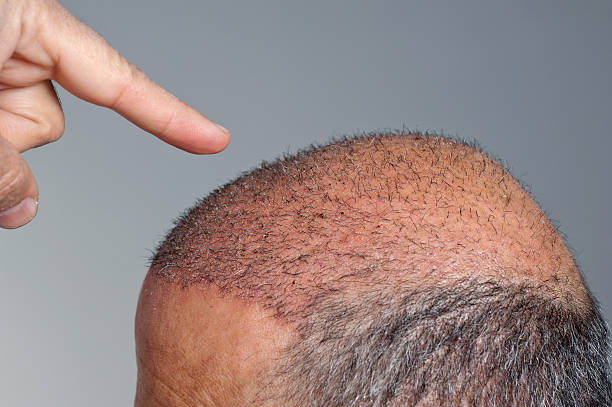Scalp Psoriasis Explained: Symptoms, Causes, and Relief Options
Scalp psoriasis affects millions of people worldwide, presenting as a chronic autoimmune condition that causes thick, scaly patches on the scalp. This inflammatory skin disorder can range from mild flaking to severe scaling that covers the entire scalp, often extending beyond the hairline. Understanding the symptoms, underlying causes, and available treatment options is essential for managing this condition effectively and maintaining both scalp health and quality of life.

What are the common symptoms of scalp psoriasis?
Scalp psoriasis manifests through several distinctive symptoms that can vary in severity from person to person. The most recognizable sign is the development of raised, reddish patches covered with thick, silver-white scales. These patches typically appear on the back of the head, behind the ears, and along the hairline, though they can cover the entire scalp in more severe cases.
Intense itching is another hallmark symptom, often leading to scratching that can worsen the condition and potentially cause temporary hair loss. The affected areas may feel tender or sore to the touch, and the scaling can range from fine, dandruff-like flakes to thick, crusted plaques. Unlike regular dandruff, psoriatic scales tend to be thicker and have a silvery appearance. Some individuals also experience bleeding when scales are removed, and the condition may extend to the forehead, neck, or ears.
What are the most effective treatment options for scalp psoriasis?
Medical treatment for scalp psoriasis involves several approaches, typically starting with topical therapies. Prescription shampoos containing coal tar, salicylic acid, or ketoconazole can help reduce scaling and inflammation. Topical corticosteroids remain a first-line treatment, available in various strengths and formulations specifically designed for scalp application.
For moderate to severe cases, healthcare providers may prescribe topical vitamin D analogues like calcipotriene, which can be combined with corticosteroids for enhanced effectiveness. Topical retinoids and calcineurin inhibitors offer additional options, particularly for sensitive areas around the hairline.
When topical treatments prove insufficient, systemic therapies become necessary. These include traditional medications like methotrexate, cyclosporine, and newer biologic drugs that target specific immune system pathways. Phototherapy, particularly narrowband UV-B treatment, can also provide significant relief for widespread scalp psoriasis.
How can you manage scalp psoriasis flare-ups at home?
Home management strategies play a crucial role in controlling scalp psoriasis symptoms between medical treatments. Gentle hair care practices are essential, including using mild, fragrance-free shampoos and avoiding harsh chemicals or excessive heat styling. Regular moisturizing with specialized scalp treatments or natural oils like coconut or jojoba oil can help reduce dryness and scaling.
Stress management techniques such as meditation, yoga, or regular exercise can help prevent flare-ups, as stress is a known trigger for psoriasis. Maintaining a consistent sleep schedule and avoiding known triggers like excessive alcohol consumption or smoking also supports overall skin health.
Creating a humid environment at home, especially during dry winter months, can prevent excessive scaling. Using a humidifier and avoiding very hot showers helps maintain scalp moisture. When washing hair, lukewarm water and gentle massaging motions prevent further irritation while effectively removing scales.
What role does diet play in managing scalp psoriasis?
While no specific diet can cure scalp psoriasis, certain dietary approaches may help reduce inflammation and support overall skin health. Anti-inflammatory foods rich in omega-3 fatty acids, such as fish, walnuts, and flaxseeds, may help decrease systemic inflammation that contributes to psoriasis flare-ups.
Some individuals find that eliminating potential trigger foods helps manage their symptoms. Common dietary triggers include processed foods high in sugar, refined carbohydrates, and excessive amounts of red meat. Gluten sensitivity has been noted in some psoriasis patients, though a gluten-free diet should only be considered under medical supervision.
Maintaining adequate hydration and consuming plenty of fruits and vegetables provides essential vitamins and antioxidants that support skin health. Vitamin D, either through supplements or foods like fortified dairy products and fatty fish, may be particularly beneficial given its role in skin cell regulation.
What are the latest advancements in scalp psoriasis treatment?
Recent years have brought significant innovations in scalp psoriasis treatment, particularly in the development of targeted biologic therapies. These medications work by blocking specific proteins involved in the inflammatory process, offering hope for patients with treatment-resistant conditions.
New topical formulations have improved the delivery and effectiveness of traditional medications. Foam-based vehicles for corticosteroids and vitamin D analogues provide better scalp penetration while being easier to apply through hair. Additionally, combination therapies that pair different active ingredients in single formulations have shown enhanced efficacy.
Research into the role of the gut microbiome in psoriasis has opened new avenues for treatment, with some studies exploring probiotic supplementation as an adjunct therapy. Advanced phototherapy techniques, including targeted excimer laser treatments, allow for precise treatment of affected areas while sparing healthy skin.
This article is for informational purposes only and should not be considered medical advice. Please consult a qualified healthcare professional for personalized guidance and treatment.




